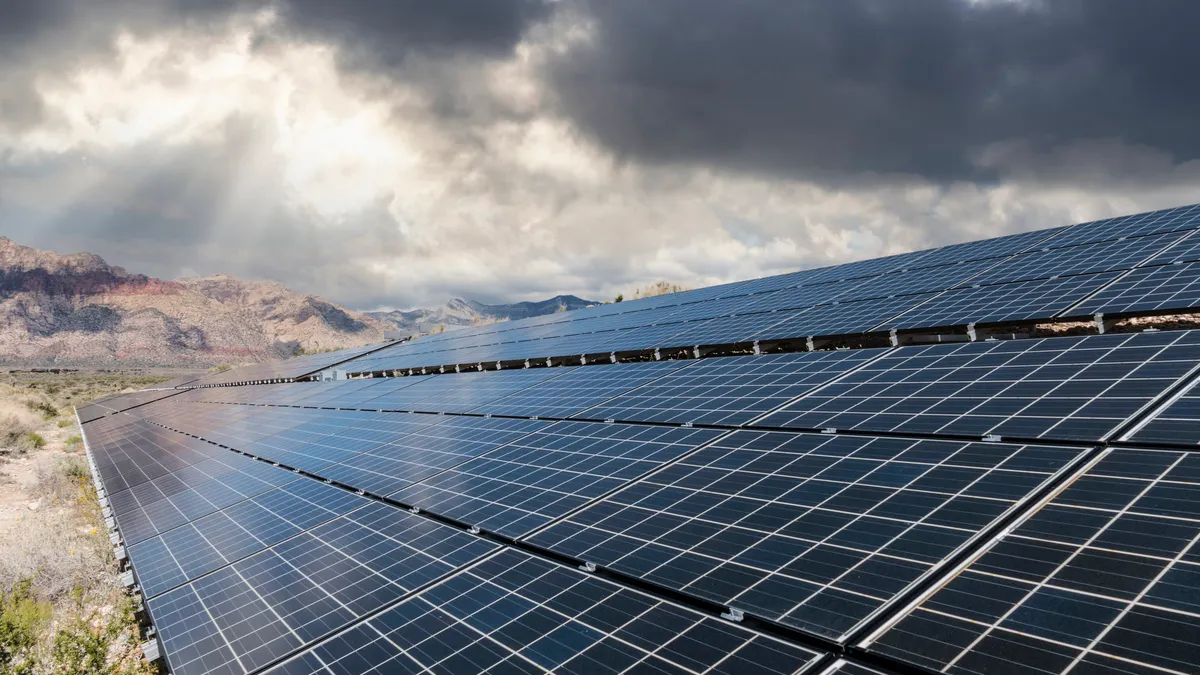Dive Brief:
- The Energy Department announced $40 million for the domestic solar supply chain, a continuation of the federal clean energy investments touted by Vice President Kamala Harris at last week's debate.
- About $16 million will go toward four projects aimed at improving the lifecycle of photovoltaic solar systems, according to the department. Another $20 million was earmarked for advancements in solar manufacturing.
- "The U.S. has doubled annual solar installations over the past four years, and today's announcement further supports manufacturers as they create more resilient solar energy technologies and maximize the life of their products, Energy Secretary Jennifer Granholm said in a statement.
Dive Insight:
This is at least the second time the Biden administration has unveiled funding for end-of-life solar management. In July 2023, the DOE announced $20 million for solar panel lifecycle optimization.
The funding is part of the Energy Department's push to bolster photovoltaic systems' end-of-life management as more solar panel materials reach the end of their use and enter the waste stream.
Solar panels, which typically last roughly 25 years, often contain metals such as lead and cadmium, which can be harmful to health and the environment at high levels, making it important to manage their waste properly, according to the Environmental Protection Agency.
In 2022, the DOE released a five-year strategy to cut the cost of recycling and reduce the environmental impact of solar energy modules at end-of-life in half. The plan aims to contend with projections from the International Renewable Energy Agency that estimate cumulative end-of-life PV waste in the U.S. will reach between 0.17 and 1 million tons in 2030.
That number is expected to balloon to 10 million tons by 2050, with the country expected to have the second largest number of end-of-life panels in the world.
The agency is hoping that new projects will help lower the cost of recycling PV modules, rather than disposing of them in landfills, making the full lifecycle of solar supply chains more sustainable.
The four projects receiving millions of dollars in funding to work on this goal include:
- $8 million for Electric Power Research Institute in Palo Alto, California
- $4 million for Case Western Reserve University in Cleveland, Ohio
- $2.4 million for kWh Analytics in Sacramento, California
- $1.3 million for the University of North Carolina at Charlotte in Charlotte, North Carolina
The $20 million for solar manufacturing will go towards research, development and demonstration projects for solar hardware, including for crystalline silicon, module technology, cadmium telluride module technology and non-module hardware technology.















